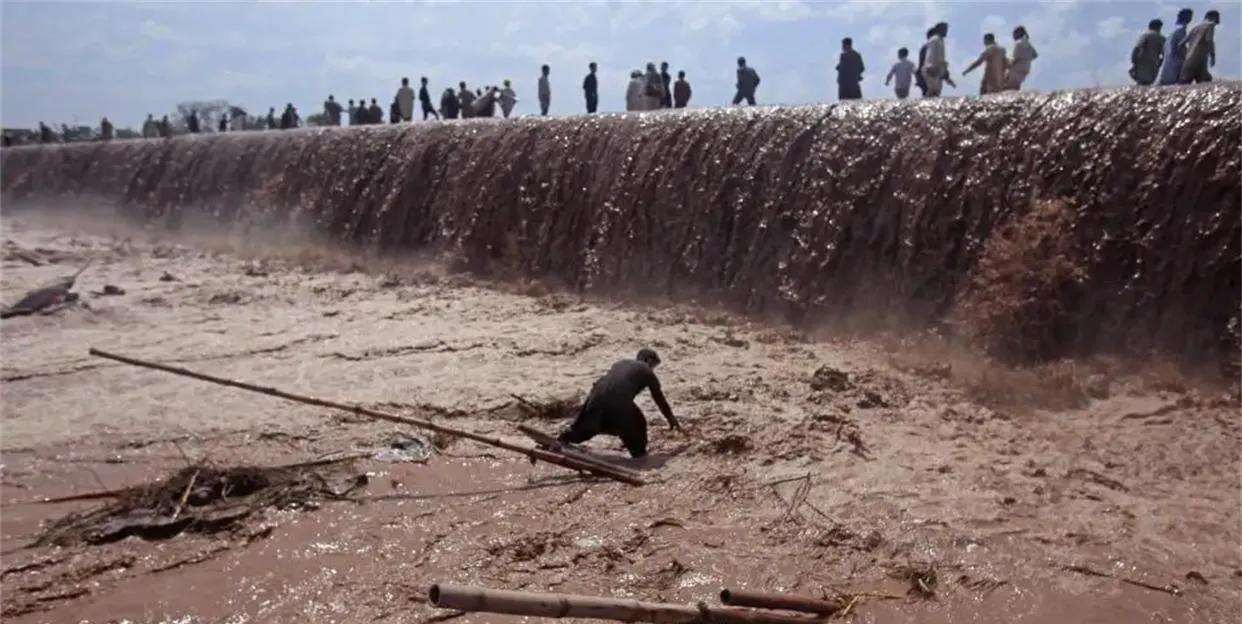Pakistan's exceptionally high temperatures melt glaciers, rivers rise and wash away bridges, and 33 lakes burst their banks at any time!
According to media reports, in recent times, the South Asian subcontinent has been covered by heat waves, nearly a hundred people have lost their lives because of the hot weather, hundreds of millions of people's lives have been affected, India, Pakistan are deeply affected, Pakistan's high temperature has broken through the highest record in decades, before it has time to experience spring into an extremely hot summer.
According to pakistan's meteorological department, the daytime temperature in most parts of the country is 5-8 degrees Celsius higher than in previous years, so the abnormal high temperature will have a direct impact on glaciers in mountainous areas, accelerate the rate of glacier melting, and form more than 3,000 glacial lakes overnight, of which 33 lakes may break the embankment at any time, which will inevitably cause huge floods in the country. Sources show that so far, 65 people in Pakistan have died in the heat. Pakistan's meteorological authorities said it was the first time in decades that there had been no spring in Pakistan.
Meteorological experts said that in the past 20 days, the amount of water in Pakistan's Shispa Glacier Lake has increased by 40%, because the temperature in northern Pakistan has risen abnormally, and a large amount of water has flowed to the surrounding areas, which in turn has formed more than 3,000 glacial lakes in northern Pakistan, and once it collapses, it will undoubtedly trigger a major flood. Before that, a concrete-built bridge in northern Pakistan collapsed and sank in the river. The reason is that the abnormal heat has caused the glacier to melt, and the river has soared directly to wash away the bridge, but for Pakistan, there are many potential dangers posed by these glacial lakes, and once the embankment is broken, the houses and villages along the river may suffer.
Pakistani officials say that every year from June to September, when the glacier melts, the raging torrent rolls up huge rocks, destroying local trees, orchards and many people's houses are smashed by floods and stones. Local water conservancy facilities were not spared and suffered severe damage. Pakistan is the largest ice sheet outside of the Antarctic and Arctic, with an area of 13,680 square kilometers and 13% of the Indus Basin. NASA says the number of glacial lakes has grown by 48 percent in the past 30 years, as has Pakistan.
It is worth mentioning that Pakistan's neighbor India also suffered a heat wave once in 122 years, and the Indian meteorological department said that the country's highest temperature in March was 33.1 degrees Celsius, the highest temperature in 122 years. The highest temperatures in April in the northwest and central regions of India were 35.9 degrees Celsius and 37.78 degrees Celsius respectively, and also experienced the "hottest April" in 122 years.
The official website of the European Space Agency also pointed out that the surface temperature in India's northwest region was close to 55 degrees Celsius in late April, and the temperature in the local area was as high as 60 degrees Celsius. In addition, recent nighttime temperatures in many parts of India have fallen below 30 degrees Celsius, which experts say is likely to lead to death because the body's health cannot be restored in hot weather.
According to the media, the hot weather in South Asia generally began in June, but this year's heat wave was significantly earlier than the same period last year, catching local residents and the government off guard. By now, the heat wave in India has killed 25 people, and the actual death toll will be even higher.
Of course, the continuous hot weather will also trigger a series of chain reactions, such as large-scale power outages, train outages and a series of problems caused by the reduction of global food prices, which will affect not only local residents, but also countries around the world.
